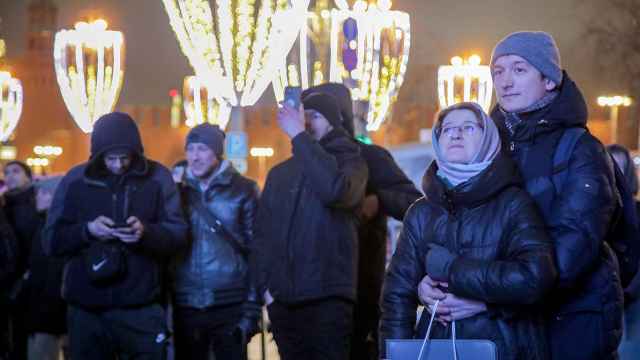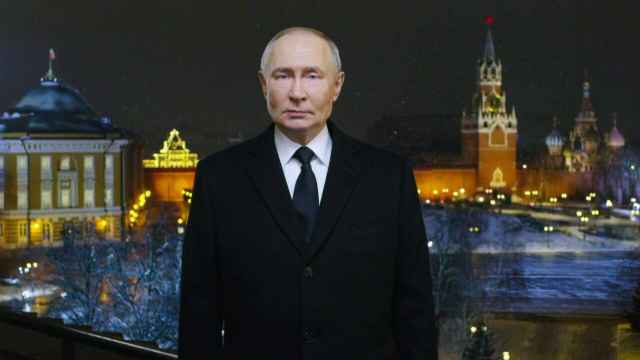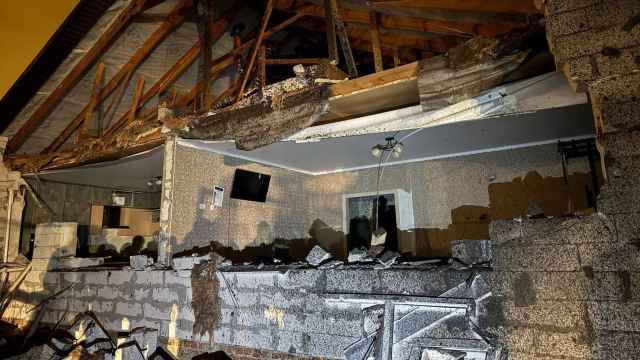WASHINGTON — The chairman of a U.S. Senate committee has delayed a vote on the New START arms control treaty with Russia until at least mid-September, after months of effort to win backers produced scant Republican support.
Democratic Senator John Kerry had wanted the committee to vote before the August recess that starts at the end of this week. He said he would bow to the requests of senators for more time to study the document.
President Barack Obama signed the agreement with President Dmitry Medvedev in April and sent it to the Senate in May. Obama said he would like to see the Senate ratify it this year.
The treaty will need 67 votes to clear the Senate, meaning at least eight Republican votes are needed. Only one Republican, Richard Lugar, has so far publicly supported it, and in recent weeks, the treaty has drawn more Republican criticism as partisan rhetoric heats up ahead of Nov. 2 congressional elections.
The agreement would cut the number of nuclear warheads deployed in the United States and Russia by about 30 percent.
"My interest is not in trying to jam this through," Kerry told the committee at a business meeting Tuesday. "I respect every senator's right to further examine it."
Kerry warned that without the treaty, there was no system in place to verify the two countries' nuclear arsenals, by far the world's largest. He said he hopes members can vote on it on Sept. 15 or 16 shortly after returning from a recess.
Lugar told the panel he had been prepared to vote now and "let the chips fall where they may." The treaty was needed because such documents provided "some visibility of what is going on" in Russia's nuclear arsenal, he said.
"At some point we need to think about the United States of America and our security interests," Lugar said.
Lugar's support meant the treaty would have been approved by the committee had it held the vote this week. But a panel vote might have irritated other Republicans, whose Senate leaders have been calling for more time.
A senior administration official said there was reason to believe more Republicans ultimately would be won over. Some Republicans have told the White House privately that "they expect to be there in the end" and vote for the New START, the official said, asking not to be identified.
But key Senate Republicans have made several demands before they announce publicly whether they will support the treaty. They urged the Obama administration to release the record of negotiations to prove its assertion that there were no secret deals made with the Russians to limit missile defense systems.
To try to meet this demand, a summary of the negotiating record affecting missile defense has been made available to senators, Kerry told reporters.
The Senate's No. 2 Republican, Jon Kyl, has sought White House commitments to modernize the U.S. nuclear weapons that remain. The administration pledged $80 billion for this over 10 years but Kyl said a key test would be whether Congress approves some of the money for the next fiscal year.
Arms control advocates charge some Republicans are recklessly moving the goal posts — and seeking more arms spending for their own states.
"It is irresponsible and unnecessary for a few senators to hold New START and U.S. national security hostage for billions more dollars for weapons laboratories," said Daryl Kimball, executive director of the Arms Control Association.
The White House said it remained optimistic about ratification. "The treaty deserves the same bipartisan support that past arms control treaties with Russia have received," National Security Council spokesman Mike Hammer said.
Under the treaty, each side agreed to reduce the number of deployed strategic nuclear warheads to no more than 1,550 within seven years, and reestablish on-site inspections.
A Message from The Moscow Times:
Dear readers,
We are facing unprecedented challenges. Russia's Prosecutor General's Office has designated The Moscow Times as an "undesirable" organization, criminalizing our work and putting our staff at risk of prosecution. This follows our earlier unjust labeling as a "foreign agent."
These actions are direct attempts to silence independent journalism in Russia. The authorities claim our work "discredits the decisions of the Russian leadership." We see things differently: we strive to provide accurate, unbiased reporting on Russia.
We, the journalists of The Moscow Times, refuse to be silenced. But to continue our work, we need your help.
Your support, no matter how small, makes a world of difference. If you can, please support us monthly starting from just $2. It's quick to set up, and every contribution makes a significant impact.
By supporting The Moscow Times, you're defending open, independent journalism in the face of repression. Thank you for standing with us.
Remind me later.





